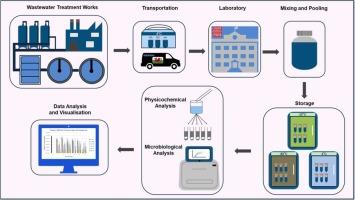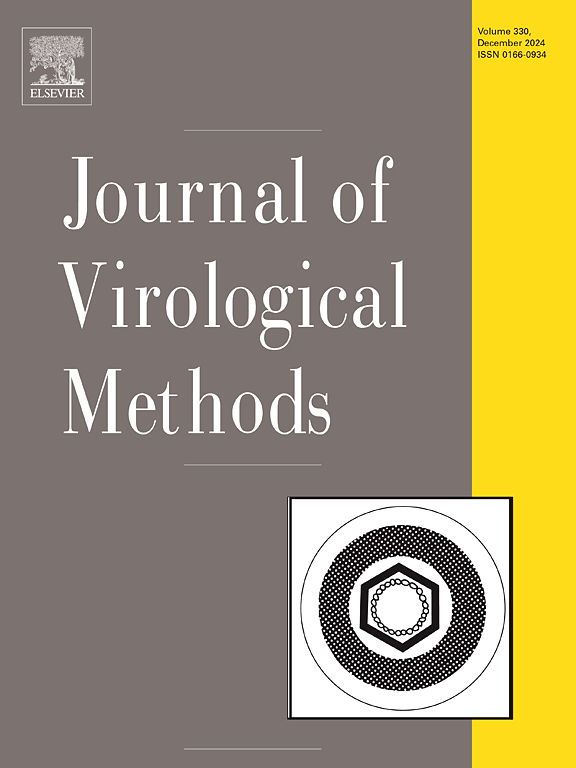Wastewater sample storage for physicochemical and microbiological analysis
IF 2.2
4区 医学
Q3 BIOCHEMICAL RESEARCH METHODS
引用次数: 0
Abstract
Wastewater-based epidemiology (WBE) is a crucial tool for health and environmental monitoring, providing real-time data on public health indicators by analysis of sewage samples. Ensuring the integrity of these samples from collection to analysis is paramount. This study investigates the effects of different cold-storage conditions on the integrity of wastewater samples, focusing on both microbiological markers (such as extractable nucleic acids, SARS-CoV-2, and crAssphage) and physicochemical parameters (including ammonium, orthophosphate, pH, conductivity, and turbidity). Composite samples from the raw wastewater influent from five wastewater treatment works in South Wales, UK, were stored at 4°C, -20°C, and -80°C, and subjected to up to six freeze-thaw cycles over one year. The study found significant effects of storage temperature on the preservation of certain WBE markers, with the best yield most frequently seen in samples stored at -80°C. However, the majority of WBE markers showed no significant difference between storage at -80°C or at 4°C, demonstrating that it may not always be necessary to archive wastewater samples at ultra-low temperatures, thus reducing CO2 emissions and laboratory energy costs. These findings underscore the importance of optimized storage conditions to maintain sample integrity, while ensuring accurate and reliable WBE data for public health and environmental monitoring.

用于理化和微生物分析的废水样本存储。
污水流行病学(WBE)是健康和环境监测的重要工具,通过分析污水样本提供有关公共健康指标的实时数据。确保这些样本从采集到分析的完整性至关重要。本研究调查了不同冷藏条件对废水样本完整性的影响,重点关注微生物标记物(如可提取核酸、SARS-CoV-2 和 crAssphage)和理化参数(包括氨、正磷酸盐、pH 值、电导率和浊度)。研究人员将英国南威尔士五个污水处理厂的原废水进水复合样本分别储存在 4°C、-20°C 和 -80°C,并在一年内进行了多达六次冻融循环。研究发现,储存温度对某些水生生物碱标记物的保存有明显影响,在-80°C下储存的样本产量最高。不过,大多数水生生物标记物在-80°C 和 4°C 下的保存效果并无明显差异,这表明并不总是有必要在超低温下保存废水样本,从而减少二氧化碳排放和实验室能源成本。这些发现强调了优化存储条件对保持样本完整性的重要性,同时确保为公共卫生和环境监测提供准确可靠的水生生物数据。
本文章由计算机程序翻译,如有差异,请以英文原文为准。
求助全文
约1分钟内获得全文
求助全文
来源期刊
CiteScore
5.80
自引率
0.00%
发文量
209
审稿时长
41 days
期刊介绍:
The Journal of Virological Methods focuses on original, high quality research papers that describe novel and comprehensively tested methods which enhance human, animal, plant, bacterial or environmental virology and prions research and discovery.
The methods may include, but not limited to, the study of:
Viral components and morphology-
Virus isolation, propagation and development of viral vectors-
Viral pathogenesis, oncogenesis, vaccines and antivirals-
Virus replication, host-pathogen interactions and responses-
Virus transmission, prevention, control and treatment-
Viral metagenomics and virome-
Virus ecology, adaption and evolution-
Applied virology such as nanotechnology-
Viral diagnosis with novelty and comprehensive evaluation.
We seek articles, systematic reviews, meta-analyses and laboratory protocols that include comprehensive technical details with statistical confirmations that provide validations against current best practice, international standards or quality assurance programs and which advance knowledge in virology leading to improved medical, veterinary or agricultural practices and management.

 求助内容:
求助内容: 应助结果提醒方式:
应助结果提醒方式:


